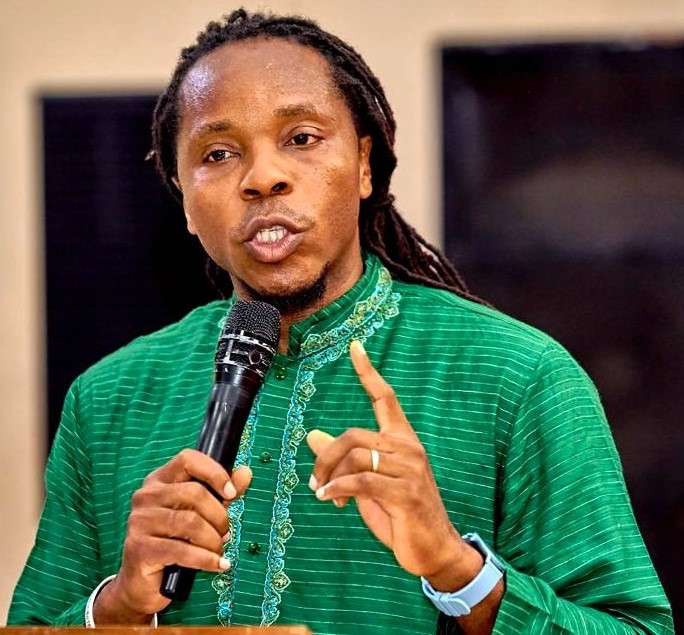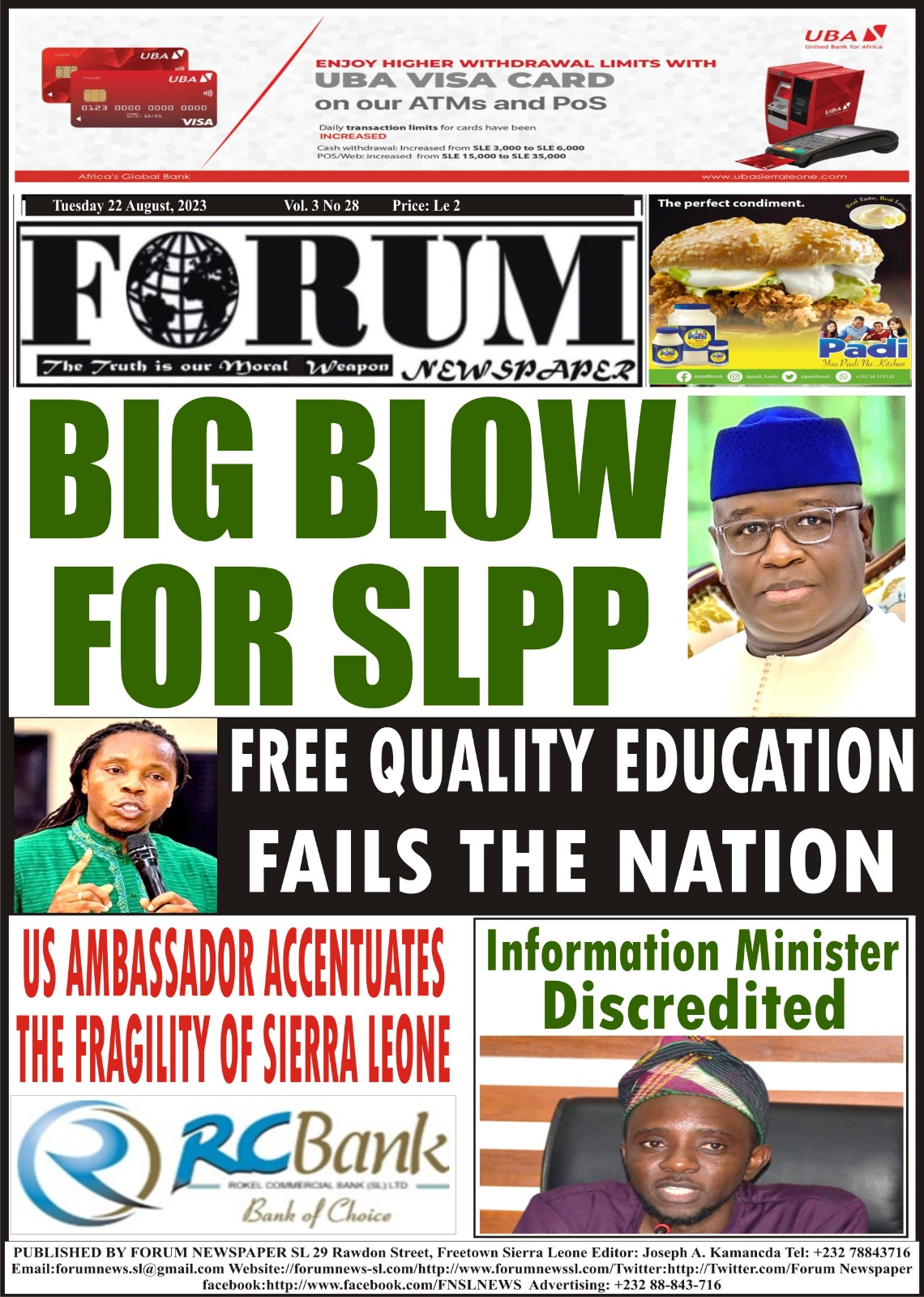By Donstance Koroma
Notwithstanding the facts that the country’s Free Quality School Education is reported to have recorded success stories in terms of pre-school enrolments and entries for public examinations, there are still sets of Sierra Leoneans children who are yet to benefit from the much praised Julius Maada Bio-led Sierra Leone People’s Party-SLPP pro-people policy. The article aims examining the excesses and challenges that are still associated with the Free Quality Education since its inception well over five years ago.
The decision of the government to allocate twenty-one percent (21%) of the national budget to junior and senior secondary school education was lauded by the international communities and host of development partners, who actually bankrolled the drive. This warranted multilateral donors in tailoring their programmes towards supporting education with the aim of aiding what they described as a novelty.
Street children, children of visually impaired and physically challenged parents contribute appreciable percentages of the Sierra Leone population who are yet to benefit from the challenging and failed Free Quality School Education in the last five years. These happened simply because the sector under review was not manned by a professional educationist, but by a mere social media enthusiast, Dr David Moininah Sengeh, who spent more time on his social media walls than how he focus on policy implementations in addressing issues associated with the challenging sector.
Separate from street children, children of the visually impaired and the physically challenged parents, as well as those under parental care are all seen roaming the streets of Freetown and other provincial cities in retail petty trading during and after school hours throughout the period under review.
By the look of things, it is obvious that those groups of marginalised children are among Bio’s uncountable, because his ‘Big Five Game Changers’ do not priorities education in his second term, going forward.
Therefore, many might be tempted to ask what awaits the Free Quality Education when the government is concentrating sustenance of gains recorded and accelerating development to another sector as flagship project, abandoning the incomplete Free Quality Education he campaigned with the June 24 polls. Yet the Free Quality Education scheme is still an unfinished business.
In the streets of Freetown and the provincial headquarters towns, children of school going ages are seen perambulating with either their physically challenged and visually impaired parents begging for their livings, instead of going to school.
Most physically challenged and visually impaired parents are inseparable from their children due to the assistance those children render them on a daily basis.
During the past five years of the Free Quality School Education, inadequate school structures and furniture were the bottle necks that came up vividly.
The government in 2018 promised to construct more schools to meet the school growing population demand.
Despite the government, development partners and private sector players also constructed and renovated so many classrooms in different parts of the country as part of efforts in complementing government’s strides toward sustaining the Free Quality Education, yet the problem of inadequate classrooms to accommodate the thousands of new comers yearly still remain a very daunting task.
Also formed critical components of setbacks faced by the policy are in the areas of lack of government’s commitment with huge absent of political will to develop the capacities of untrained and unqualified teachers. The aspect of deliberate denials of rights to job motivations of unpaid teachers especially with pin-codes, university graduates with specialities in core subjects areas such as Mathematics, English Language, Literature in English, Agricultural Science etc are fair shares of the challenges faced by the policy. And these sets of teachers are always shuttling between schools and private syndicates to make a daily living for them and their families, which at the end of the term or year affect pupils at internal or external examinations levels, due to the fact such professional teacher offer their bests to the private lessons than in the government-assisted school classrooms, which also contributed largely to the failures the Free Quality Education in the last five years.
On the other hand, the present pupils in government and government-assisted schools are currently battling with sitting accommodations due to overcrowding.
With the aim of improving teaching and learning outcomes gave birth to the ‘Distribution of Teaching and Learning materials;’ a project that also attracted huge donor technical and financial support.
Performance Audit Report published by the Audit Service Commission, on the distribution, handling and storage of sensitive learning materials turned out to be a nightmare, talk less of the huge financial involvement.
In the said audited report, lack of storage facilities from both the schools and local councils resulted to the damage of many of the teaching and learning materials.
The report revealed that majority of stores housing the teaching and learning materials across the country have leaking roofs, as books packed on the bare floors posing threat to the schooling materials.
Accessing hard to reach schools with the teaching and learning materials was also sighted as some of the major challenges during implementation of the said policy, due to mobility constrains that prevented certain schools from benefiting from teaching and learning materials that were provided by the scheme, as if it is not a Government of Sierra Leone policy implementation drive.
Audit Service also sighted the alarming inequitable distribution of the teaching and learning materials across the country, with the South and East of the country enjoyed timely and full supply of text and exercise books as opposed to the North-East and West that witnessed incomplete and untimely supplies of such facilities. What an inequity?
Duplications in the procurement and supply of sporting equipment to schools and the lack of recreational facilities in many of the schools across the country to enable pupils make good use of the sporting equipment, makes the sporting equipment a mere furniture house in stores of schools.
To many parents in Freetown, the Free Quality School Education is far from being free, owing to the fact that it comes with its own financial burdens that the very Free Quality Education was expected to have taken off from heads of parents.
Since the genesis of the Free Quality Education, the amount of monies spent by parents whose children are entering junior and senior secondary schools continues to be skyrocketing every academic year to the astonishment of the many poor and venerable parents.
Such instances have prevented pupils with either the right scores or aggregates from attending schools of their choices, simple because their parents can’t afford the cost associated with gaining admission in schools under the Free Quality Education.
Parents with the financial capabilities whose children do not have either the right scores or aggregate ended up gaining admission to those highly rated government and government-assisted schools.
Free Quality School Education, parents disclosed have increase school charges in most public schools ever in the history of the country to their dissatisfaction.
With the current economic trend in Sierra Leone, worry grip families as to how they can confront the increase prices of school materials as September of every year marks the reopening of schools in the country. It is against some of these backdrops that many beneficiaries and would-be targeted groups of policy continue to describe the Free Quality Education as a huge governance failure in the educational sector. And the more reason Dr Sengeh shouldn’t have been retained in governance at that particular level of the Bio administration.










